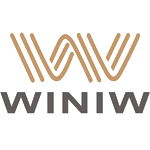Lorsqu'il s'agit de choisir du cuir pour diverses applications telles que la mode, le mobilier, les intérieurs automobiles et plus encore, la question de savoir quel type de cuir est le meilleur se pose souvent. Cependant, la réponse n'est pas simple car elle dépend d'une variété de facteurs, y compris l'utilisation prévue, le budget et les préférences personnelles. Pour vous aider à prendre cette décision, explorons certains des types de cuir les plus populaires et leurs avantages respectifs.
1. Cuir pleine fleur
Description : Le cuir pleine fleur est considéré comme étant le cuir de meilleure qualité disponible. Il est fabriqué à partir de la couche externe du cuir, qui conserve ses marques naturelles, sa texture et ses pores.
Avantages :
- Durabilité : Le cuir pleine fleur est très durable et vieillit magnifiquement, développant un patine riche avec le temps.
- Respirabilité : Ses pores naturels permettent un excellent flux d'air, ce qui le rend confortable pour les vêtements et le mobilier.
- Appel Esthétique : Les marques naturelles et les variations de texture donnent au cuir plein grain un aspect unique et séduisant.
Inconvénients :
- Coût : En raison de sa haute qualité, le cuir plein grain a tendance à être plus coûteux.
- Entretien : Nécessite un entretien régulier pour préserver son apparence et éviter qu'il ne se dessèche.
2. Cuir semi-grain
Description : Le cuir semi-grain est également extrait des couches externes de la peau mais a subi un traitement supplémentaire, tel que le sablage et le limage, pour obtenir une apparence uniforme.
Avantages :
- Apparence : Le cuir semi-grain a une texture lisse et uniforme et peut être fini pour ressembler au cuir plein grain.
- Polyvalence : Convient à une large gamme d'applications en raison de son équilibre entre qualité et abordabilité.
- Durabilité : Bien que légèrement moins durable que le plein grain, le cuir semi-grain reste assez résistant.
Inconvénients :
- Apparence traitée : La texture uniforme manque du caractère naturel du cuir plein grain.
- Sensibilité aux rayures : Plus enclin aux rayures et à l'usure qu'un cuir plein grain en raison de la suppression de la couche supérieure.
3. Cuir véritable (cuir fendu)
Description : Le cuir véritable, souvent appelé cuir fendu, est fabriqué à partir des couches intérieures de la peau. Il est généralement embossé pour lui donner une apparence granuleuse.
Avantages :
- Accessibilité : Le cuir véritable est moins coûteux que les options en cuir plein grain et semi-aniline.
- Polyvalence : Convient à une variété d'utilisations, notamment là où le coût est un facteur important.
Inconvénients :
- Durabilité : Moins durable et sujet à se fissurer et à s'user avec le temps.
- Apparence : La texture embossée peut parfois sembler artificielle.
- Manque de respirabilité : Les couches intérieures de la peau n'ont pas les pores naturels du cuir plein grain, ce qui le rend moins respirant.
4. Cuir synthétique ( Cuir PU, Cuir PVC )
Description : Les cuirs synthétiques sont fabriqués à partir de matériaux artificiels tels que le polyuréthane (PU) ou le chlorure de polyvinyle (PVC).
Avantages :
- Coût : Les cuirs synthétiques sont généralement plus abordables que le cuir véritable.
- Polyvalence : Disponibles dans une large gamme de couleurs, de textures et de finitions.
- Facilité d'entretien : Souvent plus faciles à nettoyer et à entretenir que le cuir véritable.
Inconvénients :
- Durabilité : Bien qu'ils s'améliorent, cuirs synthétiques ils sont encore généralement moins durables que le cuir véritable.
- Impact environnemental : La production peut avoir des effets négatifs sur l'environnement.
- Apparence et toucher : Peut manquer de la texture et de la chaleur naturelles du cuir véritable.
Conclusion
Le "meilleur" type de cuir dépend de vos besoins spécifiques et priorités. Le cuir plein grain offre une qualité et une durabilité sans pareilles mais à un coût plus élevé. Le cuir grain supérieur établit un équilibre entre qualité et abordabilité, ce qui en fait un choix populaire pour de nombreuses applications. Le cuir véritable est l'option la plus économique mais manque de la durabilité et de l'attrait esthétique des cuirs de meilleure qualité. Les cuirs synthétiques offrent de la polyvalence et facilitent l'entretien, mais ils ne peuvent pas toujours égaler la longévité et le toucher naturel du cuir véritable.
Lorsque vous choisissez un cuir, tenez compte de votre budget, de l'utilisation prévue et de vos préférences personnelles. Comprendre les caractéristiques de chaque type vous aidera à prendre une décision éclairée qui correspond à vos besoins et attentes.

 EN
EN








































